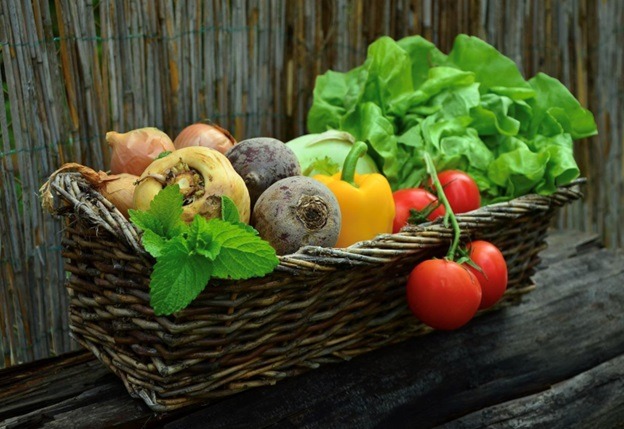Your Foods Are Your Medicines for Healthy Living
Major Depressive Disorder (MDD) is a severe mental health condition that requires the utmost care and attention. Traditional tinctures include SSRIs and SNRIs, tricyclic meds, and other medicinal compounds. While effective for most patients, medications alone are not 100% effective at treating MDD and other serious mental health disorders.
Instances of treatment-resistant depression are common with severe cases of MDD. For this reason, therapists, practitioners, and psychiatrists may recommend a combination of major depressive disorder treatment options, including Deep TMS for treating depression, regular exercise, talk therapy, VNS (Vagus Nerve Stimulation), or DBS (Deep Brain Stimulation), among others.
However, there is also holistic nutrition. Let’s explore the types of healthy foods highly recommended by dieticians and medical practitioners for treating depression.
High-Potency Omega-3 Fatty Acids
Omega-3 fatty acids are essential nutrients that the body needs for various functions. They play a role in brain development and function and have anti-inflammatory effects. Low levels of omega-3s are linked to increased risk for depression, anxiety, ADHD, bipolar disorder, and other mental health conditions. The best sources of omega-3s are fatty fish like salmon, mackerel, herring, sardines, anchovies, and trout. You can also get omega-3s from flaxseeds, chia seeds, hemp seeds, walnuts, and pumpkin seeds.
Folate B Vitamins
Folate is a water-soluble B vitamin found in leafy green vegetables, legumes, nuts, and seeds. Folate helps the body produce new cells, and it plays a role in DNA synthesis. Low levels of folate are linked to an increased risk for depression. The best sources of folate are spinach, kale, Swiss chard, turnip greens, beet greens, romaine lettuce, arugula, broccoli, asparagus, Brussels sprouts, avocado, lentils, sunflower seeds, kidney beans, and black beans.
Vitamin B6
Vitamin B6 is another water-soluble vitamin that is found in poultry, fish, starchy vegetables, and non-citrus fruits. Vitamin B6 helps the body metabolize amino acids and plays a role in neurotransmitter function. Low levels of vitamin B6 are associated with an increased risk of depression. The best sources of vitamin B6 are tuna, turkey, chicken breast, sweet potato, chickpeas, pistachios, bananas, and prunes.
St John’s Wort with Hypericin
St. John’s wort is a herbal remedy used for centuries to treat various conditions, including depression. The active ingredient in St. John’s wort is hypericin. This is thought to work by inhibiting the reuptake of serotonin, dopamine, and norepinephrine. Clinical studies have shown that St. John’s wort is as effective as antidepressants for treating mild to moderate depression. The best way to take St. John’s wort is in capsule form, with 300 mg of hypericin daily.
Iron for Transporting O2
Iron is a mineral found in meat, poultry, seafood, beans, and dark leafy greens. Iron helps the body transport oxygen in the blood. Low levels of iron can lead to anemia, linked to an increased risk for depression. The best sources of iron are beef liver, oysters, clams, mussels, shrimp, tofu, spinach, Swiss chard, kale, beet greens, and quinoa.
Magnesium for Maintaining Nerve & Muscle Function
Magnesium is a mineral found in dark chocolate (at least 70% cacao), pumpkin seeds, almonds, and cashews. Magnesium helps the body maintain nerve and muscle function and healthy bones. Low levels of magnesium are linked to an increased risk for depression.
Zinc for Immune Functionality
Zinc is a mineral found in meat, seafood, legumes, nuts, seeds, eggs, dairy & grains. Zinc plays a role in many enzymatic reactions in the body, including immune function, metabolism growth & repair. Low levels of zinc have also been linked to an increased risk for depression.
Probiotics for a Healthy Gut
Probiotics are live microorganisms (usually bacteria) that are similar to the ones that naturally live in your gut. Probiotics help to keep your gut healthy by maintaining the balance of good & bad bacteria. Probiotics have many health benefits, including reducing inflammation & boosting immunity. Probiotics may also help to reduce symptoms of depression by regulating neurotransmitter function. The best sources of probiotics are yogurt, kimchi, sauerkraut, miso, kefir, tempeh & kombucha tea.
As you can tell, these foods are a recipe for overall health and wellness and are not restricted to treating mental health disorders. However, a diet rich in diversity with organic, natural, mineral-rich foods is an essential bulwark against the onset of depression and in maintaining a healthy disposition. Consult with a dietician for setting up a meal plan to help in your fight against depression.

